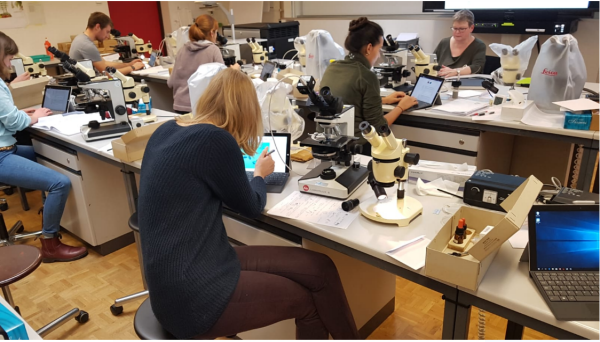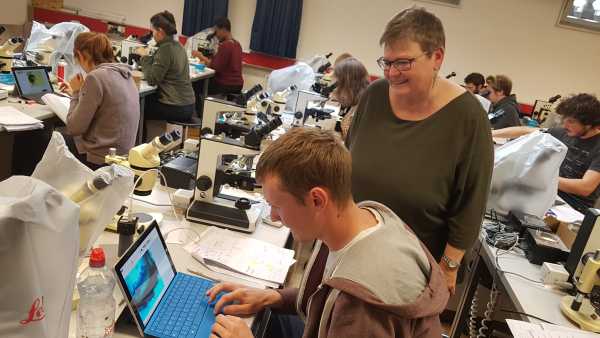A conversation with Monika Maurhofer
Institute of Agricultural Sciences
Monika Maurhofer has been a senior scientist and lecturer at the Institute for Integrative Biology (IBZ) for more than 18 years. Recently she was appointed to Adjunct Professor. We took this as an opportunity to get to know her a little better.
D-USYS: Your research is about biological pest control. What are you doing exactly?
Monika Maurhofer: «We work with microorganisms that have the ability to protect plants from pests, such as fungi and insects. We are also investigating how these beneficial organisms live together with the plants on the molecular level. To do this, we combine experiments in the laboratory and in the greenhouse with field trials.»
Concerning this work, what are your most important goals?
«In the future, we will be able to use fewer and fewer chemical pesticides. Good alternatives are still largely lacking. My goal is to find a good combination of natural remedies that are also effective against pests in the soil. In basic research, I hope to gain new insights into how different beneficial organisms such as Pseudomonas bacteria, threadworms and fungi interact and how plants can benefit from such interactions.»
You won the Golden Owl twice: in 2014 and 2017. Could you tell us the secret of your teaching?
«The students must realize that the topic is fun. That is the most important thing. I also always look for up-to-date references. In the lecture of systematics of algae, for example, I always make the connection to current events such as ecocatastrophes caused by algae pollution or the use of algae for biofuel and health food production. With regard to fungal diseases, I recently read a passage from Gotthelf's ‘Käthi, die Grossmutter’ to the students. I personally like the passage in which Käthi encounters the potato late blight, the disease responsible for the Irish potato famine, in the field.»
Your research group «Biological Control» is one of the smaller groups at D-USYS with three doctoral students and a 50% employed technician. Can you tell us something about your desire to grow?
«I think the small group is ideal because I like to supervise my doctoral students myself. This is how I manage to balance research and teaching with my 80% workload».
What does it mean for you to be an adjunct professor?
«The title is a nice recognition for my research and teaching. In my everyday life, however, not much will change as a result. Except that, as an adjunct professor, I can finally also officially supervise doctoral theses performed on my projects myself. This is what I look forward to the most.»
Congratulations on the title of Adjunct Professor!
Further information
• Personal profile of Monika Maurhofer (English)
• ETH news from 14.12.2018


